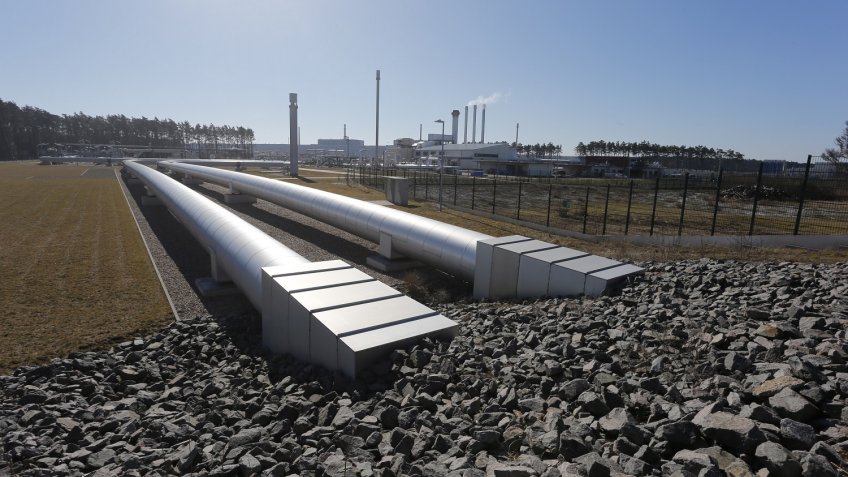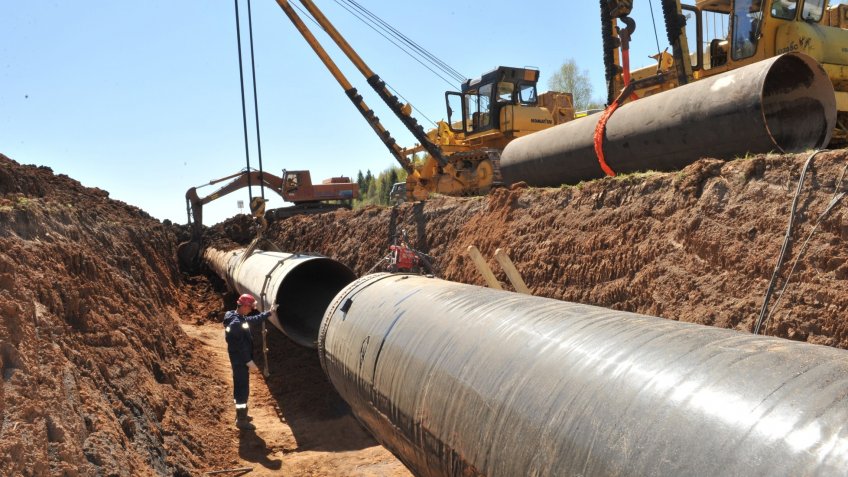
John Bolton, National Security Advisor of the United States, in his speech at the briefing in Kyiv once again urged European countries to look for new alternatives to the «Nord Stream 2».
What would be the possible consequences if EU decides to discontinue our common energy projects? This question was answered by Vladimir Litvinenko, the Principal of Saint-Petersburg Mining University and Associate Chairman of the German-Russian Commodities Forum.
As basically all the countries consume more and more energy, there is a rising doubt if they can get the required volumes. Germany as well a few other European countries aim to get the required energy supply via «Nord Stream 2». What if the pipeline won’t be built? How is it possible to make up for this kind of loss? Are the renewable power sources a solution to the problem?
Renewable energy sources, which have become widely-spread in some of the European countries, still have one important disadvantage. There is no as of yet appropriate equipment, which could be used for accumulating and storing energy produced by windmills and solar panels. Thus, all the generated volumes must be consumed straight away.
If there is no wind or during the peak of network load, gas, oil or coal are still required in order to meet the needs of industry and the public. This is specifically the case if we talk about Germany, as after a Fukushima disaster the country is heading for the closure of nuclear power plants.
If the share of hydrocarbons in the total power balance of a particular state is too small, there is a risk of facing rolling blackouts. During the summer season deadly consequences are unlikely to appear, but in the winter power cuts may lead to the total havoc.
All those talks about abandoning hydrocarbons usage through the development of renewable energy are mainly supported by those who benefit from the system, as they get public grants for purchasing green energy from the vendors. After all, back to Germany, the law obliges distribution companies to prioritize solar and wind energy as opposed to traditional energy sources, and the state budget provides subsidies for meeting the stated objective.
Of course, taking care of the environment is very important. But let’s not forget that renewable energy sources are much more expensive than traditional ones. The differences in prices, however, despite the state subsidies, are to be paid by ordinary consumers. It is also worth noting that kW/h in Germany is almost 6 times higher than, for example, in Saint-Petersburg.
In other words, at this point Europe cannot cope without consuming hydrocarbons, especially without gas consumption, given the fact that gas is considered to be purest mineral resource if compared to oil and coal. Indeed, Russia is not the only country that has significant gas reserves, and this is what Americans constantly hint at…
The question is, however, who can supply Northern and Central Europe and, in particular, Germany with required volumes? Production in Norway has already reached its peak and is projected to decline after 2020. Same thing has already happened in the Netherlands. Algeria currently exports "blue flame gas" mostly to Southern European countries, such as Italy, France and Spain. The possibility of further expansion to other markets is questionable for a number of reasons, including the growth of domestic demand.
The maximum capacity of the Trans-Caspian Gas Pipeline, which is supposed to deliver gas to Europe from Turkmenistan and Azerbaijan, is only a half of the «Nord Stream» capacity. These volumes cannot change the situation drastically.
Americans, of course, are interested in entering the European market and they do not hesitate to use political pressure to succeed. The problem is that even in the best case LNG from the US, provided there is a necessary infrastructure to liquefy it, is 40% more expensive than pipeline gas from Russia. As a result, purchasing liquefied neutral gas will lead to an increase in the financial burden on the consumer, i.e. general public and industrial enterprises. Using LNG is economically unviable, and Europeans are aware of that fact.
The thing is that Americans say that strategic importance of energy projects should prevail over the economic component. John Bolton himself declared that it is essentially important to move beyond the Russian "monopoly" on supply and offered Europeans to dip into their pockets for the purpose of diversification…
The truth is that we do not have monopoly on the European market. For example, Germany, which is our largest consumer in the EU, for many years had been receiving from Russia only a third of the total volume of imported gas, while the rest came from Norway and the Netherlands. This share has started to grow now and is projected to reach 50%, but it’s not a monopoly issue. It is a win-win situation, as everything is based on the principles of mutual benefit.
Distrust is the enemy of good-neighbourly relationships. US officials are aware of that and with their verbal interventions they are trying to provoke the surge for their own benefit. However, reality is different – our country has always delivered on its commitments. Exported raw materials were always delivered on time and in full. If it was necessary, for instance, in the case of severe cold weather, supplies were increased.
Therefore, we should not talk about overdependence of the EU on Russia, but rather note that for many years to come our country will be able to provide Europe with relatively cheap as well as necessary for its development raw commodities and resources.
What if EU will let itself be tempted and reduce imports of our gas? Will we be able to sell it on the other markets?
As energy consumption has been shifting towards the Asia-Pacific region, there is more profitability in selling raw materials to the countries of this region. The cost of commodities is higher there. Russia does not want to stand aside from this process. «Gazprom» is currently building the «Power of Siberia» pipeline. Besides, our LNG tankers are being unloaded in Chinese and Indian ports.
However, I would put the question in a slightly different way. What strategic development path is currently a priority for the domestic mineral resources sector? Will we increase exports of raw materials or increase domestic consumption? If we choose the second option, then how exactly do we do it? What kind of projects shall we implement if we follow this path? Russian Government has no answers to these questions.
Vast amounts of raw materials are in our possession. This is a huge competitive advantage over the other countries. It has been talked a lot about oil export dependence, which prevents us from making a proper progress, but these talks have been provoked by the states, which are forced to import raw materials in order to be able to live according to the lifestyle they got used to.
If we want to make our economy to make a giant leap forward, exploiting the mining industry would not be sufficient. We need to increase the share of raw hydrocarbons deep conversion in our GDP as well as establish new enterprises, which will be focused on the production of high-tech products, including petrochemical production.
These kinds of projects are being currently launched by Lukoil, Rosneft and some other companies. If we want this process to turn into a system, however, it is necessary to have clear and understandable to market participants strategic plans of our state in regards to development of the processing industry.


